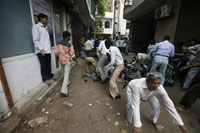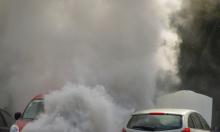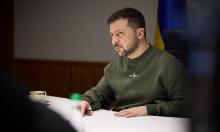Gunbattle erupts in India’s capital
Indian police battled suspected Islamic militants holed up in a New Delhi safe house Friday, killing two, including a man believed to have played a major role in bombings that ripped through India's capital this past weekend, officials said.

The suspect - identified only as Atif - is also believed to have taken a lead role in plotting blasts that hit three other cities in the past year, killing scores of people in what authorities say were attempts to provoke violence between India's Hindu majority and Muslim minority.
New Delhi Police Commissioner Y.S. Dadwal told reporters that police, acting on a tip, raided the safe house in a southern part of sprawling New Delhi in hopes of catching those behind the bombings.
The officers arrived around 11 a.m. and killed two of the militants in the ensuing gunbattle. Another was arrested and two managed to escape, he said, adding that five people were also detained for sheltering the militants.
Police spokesman Rajan Bhagat said two policemen were wounded in the fighting.
"A sizable amount of arms and ammunition was discovered in the house," he said. "The area has been cordoned off, and we are continuing our investigation."
Soon after the gunbattle broke out, scores of police officers, many in riot gear, could be seen fanning out through Jamia Nagar, the leafy lower middle-class neighborhood of three- and four-story cement buildings where the fighting took place. The scene was chaotic, with authorities trying to get civilians out of harm's way while subduing the militants.
The gunbattle put the city back on edge days after five coordinated market bombings killed 21 people - attacks credited to homegrown Islamic militants. Security was further stepped up at the city's markets with police opening the trunks of cars before letting them park.
A group calling itself the Indian Mujahideen has claimed responsibility for the New Delhi attacks. It also said it was behind bombings that killed 61 people in the western city of Jaipur in May and July blasts in the western state of Gujarat that killed at least 45.
Dadwal, the police commissioner, dismissed earlier reports that authorities were led to the safe house by a man arrested in connection with the Gujarat blasts. He did not offer any details on how the police found out about the safe house.
India's security forces have come under harsh criticism for failing to stop the bombings, which have been hitting Indian cities every few months for three years now.
While Friday's killing of the alleged militant leader appeared to be a victory for the police, previous arrests of militant leaders have not halted the attacks.
Part of the problem is that investigators are still not entirely sure who they are dealing with. Prime Minister Manmohan Singh acknowledged Wednesday that India's security services faced "vast" intelligence gaps.
But he did say that Indians - not foreign militants - may have been behind the New Delhi attacks, a rare acknowledgment that the country is facing homegrown extremists, not just the Pakistan or Bangladesh-based militant groups that also have been blamed for many attacks.
Regardless, there's still widespread uncertainty over who the militants are and how they are organized.
The Indian Mujahideen was little known before this year's bombings, and police believe it may be a front for the Students' Islamic Movement of India, or SIMI, which was banned in 2001.
Authorities believe the Islamic militants aim to spread fear among ordinary Indians and provoke violence between the country's Hindu majority and Muslim minority.
Relations between Hindus, who make up more than 80 percent of India's population, and Muslims, who account for about 130 million of India's 1.1 billion people, have been relatively peaceful since the bloody partition of the subcontinent into India and Muslim Pakistan at independence from Britain in 1947. But there have been sporadic bouts of violence.
Subscribe to Pravda.Ru Telegram channel, Facebook, RSS!




